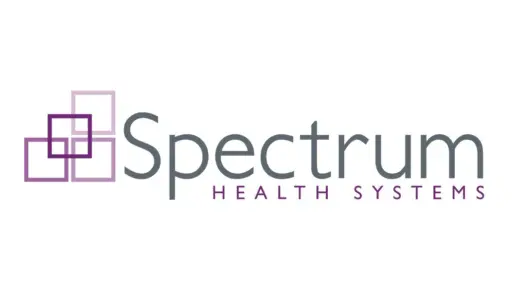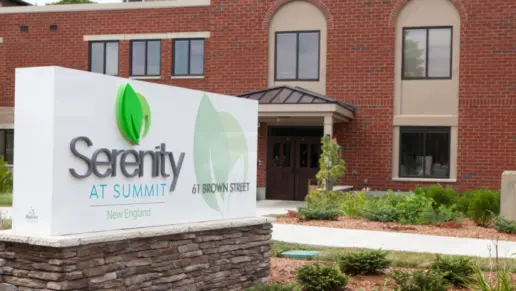Loved it. Got me back on track. Sober since February 20,2017.
About Swift River
Vertava Health of Massachusetts–Swift River is a comprehensive drug and alcohol rehab for adults in the Berkshire mountains of Cummington, Massachusetts. They offer dual diagnosis care, medically supervised detox, inpatient, outpatient, and aftercare services. Their primary treatment modalities combine individual, group, and family counseling with a wide array of evidence based complementary therapies.
Vertava Health of Massachusetts–Swift River, in Cummington, is an integrative addiction recovery center for adults specializing in dual diagnosis care, medically supervised detox, and inpatient, outpatient, and aftercare services. Their primary treatment modalities integrate psychotherapy and evidence based complementary care. Their luxury treatment center is situated in the Berkshire mountains and offers scenic views and premium amenities.
The experienced clinicians at Swift River provide round the clock medical supervision for clients detoxing from alcohol and drugs. They are licensed to prescribe FDA approved medications to ease withdrawal symptoms and prevent potentially life threatening complications.
The inpatient program at Swift River is designed to allow clients to focus on their recovery in safe, comfortable surroundings free of outside distractions and addiction triggers. Residents attend multiple therapy sessions each day, including individual, group, and family counseling sessions that draw on an array of evidence based techniques, including CBT, DBT, and motivational interviewing. In addition, Swift River’s holistic and personalized approach to treatment encompasses a variety of complementary therapies, including EMDR, art therapy, adventure therapy, experiential therapy, fitness therapy, and nutrition therapy. The luxury treatment center is located in a wilderness setting and features chef prepared meals, private transportation, onsite fitness and recreation facilities, and hiking trails.
Swift River’s outpatient programs encompass multiple levels of care to align with clients’ evolving needs. These include partial hospitalization (PHP), intensive outpatient (IOP), and traditional outpatient programs. PHP and IOP are more time intensive and are designed for clients in early recovery, those transitioning out of immersive inpatient care, or those at a heightened risk for relapse. All of Swift River’s outpatient programs are designed to offer robust care for clients who have not yet graduated to aftercare programming and require more substantial support as they cultivate their recovery.
Swift River provides a full suite of aftercare services to support clients’ sustained sobriety. This includes recovery focused programs to help clients continue developing the life skills learned in rehab, including continuing education courses in wellness, self care, coping, conflict resolution, problem solving, anger and stress management, and relapse prevention.
Vertava Health of Massachusetts–Swift River is accredited by the Joint Commission and SAMHSA. They accept private insurance, Medicaid, and self pay.
Rehab Score
Gallery

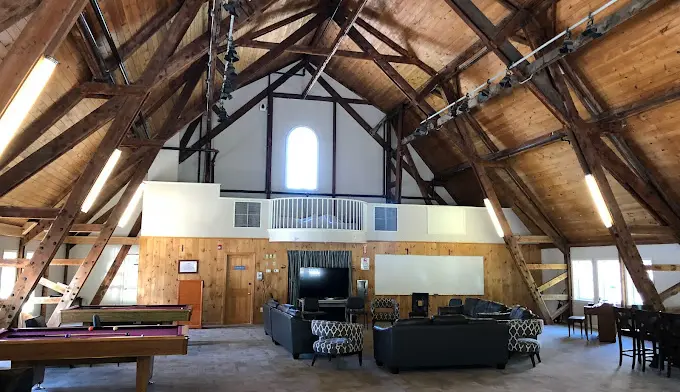
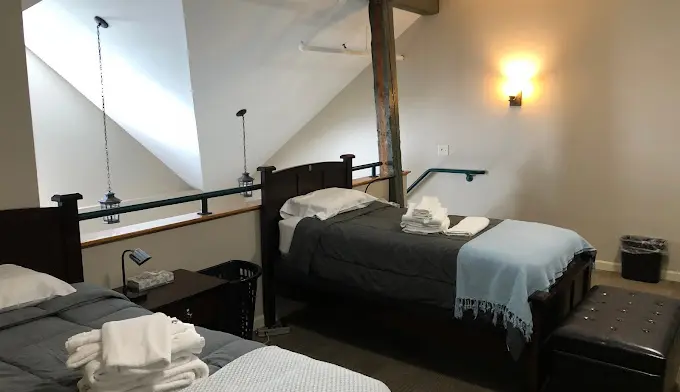
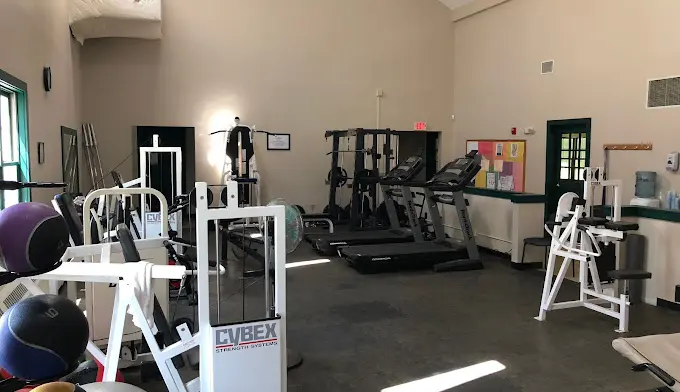
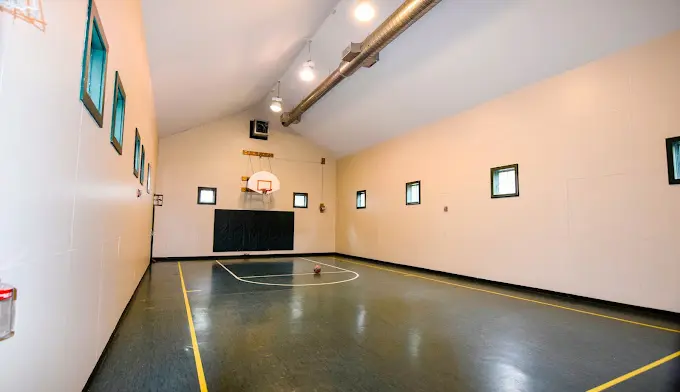

Location
Accepted Insurance


Other Forms of Payment
Private insurance refers to any kind of healthcare coverage that isn't from the state or federal government. This includes individual and family plans offered by an employer or purchased from the Insurance Marketplace. Every plan will have different requirements and out of pocket costs so be sure to get the full details before you start treatment.
Self-pay involves paying for treatment out of your own pocket. You can use savings or credit, get a personal loan, or receive help from family and friends to fund your treatment. If you don't have insurance or your insurance plan doesn't cover a specific program, self-pay can help ensure you still get the care you need.
Medicare is a federal program that provides health insurance for those 65 and older. It also serves people under 65 with chronic and disabling health challenges. To use Medicare for addiction treatment you need to find a program that accepts Medicare and is in network with your plan. Out of pocket costs and preauthorization requirements vary, so always check with your provider.
Military members, veterans, and eligible dependents have access to specific insurance programs that help them get the care they need. TRICARE and VA insurance can help you access low cost or no cost addiction and mental health treatment. Programs that accept military insurance often have targeted treatment focused on the unique challenges military members, veterans, and their families face.
Medicaid is a state based program that helps lower-income individuals and families pay for healthcare. Medicaid covers addiction treatment so those enrolled can use their coverage to pay for rehab. When a program accepts Medicaid the client often pays very little or nothing out of their own pocket.
Addiction Treatments
Levels of Care
Treatments
The goal of treatment for alcoholism is abstinence. Those with poor social support, poor motivation, or psychiatric disorders tend to relapse within a few years of treatment. For these people, success is measured by longer periods of abstinence, reduced use of alcohol, better health, and improved social functioning. Recovery and Maintenance are usually based on 12 step programs and AA meetings.
Addiction is a highly complex problem, and drug rehab in Massachusetts is often necessary to address it. These programs treat physical, mental, and relational issues that are involved. Treatment empowers individuals to manage these issues without the use of drugs.
Many of those suffering from addiction also suffer from mental or emotional illnesses like schizophrenia, bipolar disorder, depression, or anxiety disorders. Rehab and other substance abuse facilities treating those with a dual diagnosis or co-occurring disorder administer psychiatric treatment to address the person's mental health issue in addition to drug and alcohol rehabilitation.
A combined mental health and substance abuse rehab has the staff and resources available to handle individuals with both mental health and substance abuse issues. It can be challenging to determine where a specific symptom stems from (a mental health issue or an issue related to substance abuse), so mental health and substance abuse professionals are helpful in detangling symptoms and keeping treatment on track.
Opioid rehabs specialize in supporting those recovering from opioid addiction. They treat those suffering from addiction to illegal opioids like heroin, as well as prescription drugs like oxycodone. These centers typically combine both physical as well as mental and emotional support to help stop addiction. Physical support often includes medical detox and subsequent medical support (including medication), and mental support includes in-depth therapy to address the underlying causes of addiction.
Programs




Clinical Services
Cognitive Behavioral Therapy (CBT) is a therapy modality that focuses on the relationship between one's thoughts, feelings, and behaviors. It is used to establish and allow for healthy responses to thoughts and feelings (instead of unhealthy responses, like using drugs or alcohol). CBT has been proven effective for recovering addicts of all kinds, and is used to strengthen a patient's own self-awareness and ability to self-regulate. CMT allows individuals to monitor their own emotional state, become more adept at communicating with others, and manage stress without needing to engage in substance abuse. CBT is based on the premise that a person’s problems and difficulties stem from their struggles with the cognitive and behavioral aspects of their life. The National Institute on Drug Abuse cites that “Cognitive-behavioral strategies are based on the theory that in the development of maladaptive behavioral patterns like substance abuse, learning processes play a critical role.” Because of the interplay between a person’s thoughts and actions and reactions, a person’s life and mental and emotional health can become imbalanced to the extent that their feelings and behaviors might be impacted, things that could lead to, or further propagate substance abuse and addiction.
Dialectical Behavior Therapy (DBT) is a modified form of Cognitive Behavioral Therapy (CBT), a treatment designed to help people understand and ultimately affect the relationship between their thoughts, feelings, and behaviors. DBT is often used for individuals who struggle with self-harm behaviors, such as self-mutilation (cutting) and suicidal thoughts, urges, or attempts. It has been proven clinically effective for those who struggle with out-of-control emotions and mental health illnesses like Borderline Personality Disorder.
Group therapy is any therapeutic work that happens in a group (not one-on-one). There are a number of different group therapy modalities, including support groups, experiential therapy, psycho-education, and more. Group therapy involves treatment as well as processing interaction between group members.
In individual therapy, a patient meets one-on-one with a trained psychologist or counselor. Therapy is a pivotal part of effective substance abuse treatment, as it often covers root causes of addiction, including challenges faced by the patient in their social, family, and work/school life.
Motivational Interviewing (MI) is a clinical approach to helping people with substance abuse issues and other conditions shift behavior in positive ways. It is more goal-oriented than traditional psychotherapy, as MI counselors directly attempt to get clients to consider making behavioral change (rather than wait for them to come to conclusions themselves). Its primary purpose is to resolve ambivalence and help clients become able to make healthy choices freely.
Trauma therapy addresses traumatic incidents from a client's past that are likely affecting their present-day experience. Trauma is often one of the primary triggers and potential causes of addiction, and can stem from child sexual abuse, domestic violence, having a parent with a mental illness, losing one or both parents at a young age, teenage or adult sexual assault, or any number of other factors. The purpose of trauma therapy is to allow a patient to process trauma and move through and past it, with the help of trained and compassionate mental health professionals.
EMDR is a therapeutic modality originally developed to help process trauma. In an EMDR session, a patient is prompted to undergo eye movements that mimic those of REM sleep. This is accomplished by watching a therapist's finger move back and forth across, or following a bar of light. The goal is repetitive sets of eye movements that help the brain reprocess memory, which can significantly reduce the intensity of remembered traumatic incidents. Associated memories can heal simultaneously, leaving patients significantly calmer, more stable, and more emotionally relaxed.
Research clearly demonstrates that recovery is far more successful and sustainable when loved ones like family members participate in rehab and substance abuse treatment. Genetic factors may be at play when it comes to drug and alcohol addiction, as well as mental health issues. Family dynamics often play a critical role in addiction triggers, and if properly educated, family members can be a strong source of support when it comes to rehabilitation.
Life skills trainings involve all the skills a person must have in order to function successfully in the world. These include time management, career guidance, money management, and effective communication. Truly successful addiction recovery is based on the ability to not only live substance-free, but to thrive. Life skills teaches the practical necessities of functioning in society, which sets clients up for success in life, and therefore sobriety.
Nutrition therapy, aka medical nutrition therapy (MNT), is a way of treating physical, emotional, and medical conditions through diet. Specific dietary plans are designed by professional nutritionists or registered dietitians, and patients follow them in order to positively affect their physical and mental health.
Amenities
-
Gym
-
Yoga Studio
-
Residential Setting
-
Private Rooms
-
Hiking
-
Mountain Views
-
Walking Trails
Accreditations

The Substance Abuse and Mental Health Services Administration (SAMHSA) is a branch of the U.S. Department of Health and Human Services. Established in 1992 by congress, SAMHSA's mission is to reduce the impact of substance abuse and mental illness on American's communities.
SAMHSA Listed: Yes

LegitScript has reviewed Swift River as part of their certification program, and has determined that it meets the LegitScript standards for legality, safety and transparency.
LegitScript verified in

The Joint Commission, formerly known as JCAHO, is a nonprofit organization that accredits rehab organizations and programs. Founded in 1951, the Joint Commision's mission is to improve the quality of patient care and demonstrating the quality of patient care.
Joint Commission Accreditation: Yes
Accreditation Number: 576172
Contact Information
151 South Street
Cummington, MA 01026










